Probate is the court process necessary to gather your assets, pay creditors and taxes and then distribute what is left to your loved ones when you die. There are many misconceptions about the Probate process that we hear every day. Some of the most popular are:
*I have a Will, so no Probate is necessary.
*I don’t have a Will, a Trust or any estate plan, so no Probate is necessary.
*My total assets are valued at less than the federal estate tax exemption, so no Probate is necessary.
All of these statements are false. Probate-avoidance estate planning can be accomplished, but should be coordinated with your legal professional for determining what strategies make the most sense for your particular situation.
Understanding the Probate process is essential to understanding why Probate might want to be avoided.
Probate system process
When an individual dies, the Will (sometimes called the Last Will, Last Will and Testament or simply Will) is filed with the Probate Court in the county in which the decedent lived. A Will is actually a set of instructions for the Probate Court. It identifies the personal the decedent trusted to carry out the terms of the Will (the Personal Representative), it identifies the people the decedent considered his or her descendants (the Heirs), it names the people or charities the descendant wishes to leave assets to (the Beneficiaries), and it sometimes includes special instructions for specific property or people. A Will often includes some of the basic duties of the Personal Representative (gather the property, pay the expenses, distribute the assets) and then defers to legally imposed responsibilities found in the statutes and common law of the State where the Will is administered.
A Probate is generally commenced by the Personal Representative by the filing of the Will, presentation to the Court of the official death certificate and the payment of initial filing fees. The Personal Representative has no other powers or abilities , regardless of what the Will says, until the Probate Court receives the Will and issues formal authorization of the Personal Representative. These are known as Domiciliary Letters. It is the Domiciliary Letters that empower the Personal Representative to transact business on behalf of the estate, including accessing financial accounts, gathering assets, and dealing with business and real estate interests of the descendant. Until the Probate process is begun and these empowering letters are provided by the Court, accounts are frozen and authority to act is denied.
The Personal Representative marshals all the assets of the deceased, values them and files an inventory with the Court so all interested parties can determine in full light what the estate is worth. They can also question if the inventory is complete or may be missing assets. Notice that the Probate has been filed is published in the appropriate news outlets identifying a deadline by which claims against the estate can be filed in the Probate. The Personal Representative is required to directly notify known creditors of the estate. State law sets out the rights of creditors and claimants, governing how they are to make claims, and how the Personal Representative may object to any such claim. Once all of the creditor claims have been dealt with and all tax clearances have been obtained, the Personal Representative submits an accounting of the estate to the court. All of the income and expenses are listed, as are items of capital gains and loss. The Personal Representative presents a schedule of proposed distributions pursuant to the terms of the Will. All of the beneficiaries have the chance to object to any item listed in these petitions, and can appear before the court. A judge decides if any objection has merit. Once all of the distributions have been made, the Personal Representative petitions to close the estate and be discharged from further obligations as a fiduciary for the estate. Receipts of distributions are filed with the court at this time.
The Probate Court oversees the entire Probate process and reviews all documentation. It sets deadlines for completion for various intervals and it steps in when petitioned to settle disputes.
Advantages
Why is Probate necessary? It’s not just for attorneys to make fees, as many might expect. The Probate process provides checks and balances, accountability of all involved, established time frames and a forum for disputes.
The Probate process actually protects both the beneficiaries of estates, as well as any potential creditors and, of course, the taxing authorities. Imagine that there was no Probate process. Suppose in a current Will, your Aunt Betty left you her entire estate. But what if Aunt Betty dies and your cousin brings a copy of her old Will into the bank naming cousin as the beneficiary, and cousin demands that Aunt’s accounts be distributed to him pursuant to that old Will? How does the bank know that this is really Aunt Betty’s last Will? What if your cousin beat you to the bank and you didn’t realize it? What recourse would you have once the bank distributed to your cousin? The Probate process protects against just this scenario and many others. If you submit a Will as the last Will of Aunt Betty to the court, and someone else submits an older Will to the same court, now we have a centralized system that can ensure Aunt Betty’s wishes are carried out.
If financial institutions did not have Domiciliary Letters to rely on for telling them who is authorized to access accounts AND if the Courts weren’t overseeing financial records, an individual claiming to be the authorized representative of the estate could disburse all the estate to various “beneficiaries” and leave no money for taxes or other expenses of the estate.
Disadvantages
While Court supervision has some advantage, the Probate Process, like all court proceedings, is public. Every document filed in the matter is part of the public records, meaning anyone can gain access to them and learn the particulars of the descendant’s holdings, liabilities and beneficiaries. This is one of the most often cited disadvantages of probating an estate. Additionally, it can be costly. Fees and costs to probate a matter average about 5% of an estate: Filing fees, inventory fees, personal representative fees, appraisals, holding and distribution costs, tax filing fees and attorney fees make up the bulk of expenses. If a matter is contested and court time is required, the percentage will increase quickly.
Additionally, if the descendant held real property in more than one state, ancillary proceedings will need to be commenced in other jurisdictions to empower the Personal Representative to deal with these holdings.
Avoiding Probate
Probate is not avoided by inaction. A lack of a Will does not keep an estate out of Probate, it simply means the State will impose a Will upon you; your affairs will be handled by a court-appointed Personal Representative and your estate will pass through the rules of intestate succession.
Directing that accounts pass to a named person or charity through beneficiary designations and pay (or transfer) on death instruments is another way and estate can be distributed without Probate. Caution should be used to be sure that designations are kept current and that enough assets remain in the estate to pay for final expenses and taxes.
A Better Plan
Creating and funding a revocable living trust provides multiple benefits, not the least of which is Probate avoidance. A revocable living trust is a document that creates the rules for holding, transferring, and eventually distributing the holdings of an individual or couple. When properly drafted, a Trust names Trustees (the individual or couple creating the Trust in most cases) who become the title owners of property. A Trust is “funded” by retitling assets into the name of the Trust. As long as an asset is distributed through a Trust, no probate is necessary to accomplish the goals of the Trustmakers. Unlike a Will which is only acted upon when a person dies, a Trust also contains instructions for handling the assets of the Trust during the disability or incompetence of the Trustmakers. It can make distributions to charities or individuals in the proportion and manner the Trustmaker directs. And, unlike matters in Probate, the terms of the Trust, the assets within it and the distribution of them is privately handled with no publication or public record being create. The private administration of a Trust happens between the Successor Trustees and beneficiaries on the timeframe that best suits the parties. No accounts are frozen and access to all assets is passed seamlessly to Successor Trustees without delay. Distributions to final beneficiaries are directed by the Trustmaker and provide an opportunity for the Trustmaker to pass along values, traditions and ethics.
Trusts are tools that can be tailored to all estates and should not be viewed as an option only available to or right for the wealthy. If privacy, efficiency, ease of transition and transfer of more than just money are what you desire, contact Ross Estate Planning to discuss a plan that is right for you.
It all starts with a conversation….
Learn more at www.rossestateplanning.com or call Ross Estate Planning at 920-743-9117

